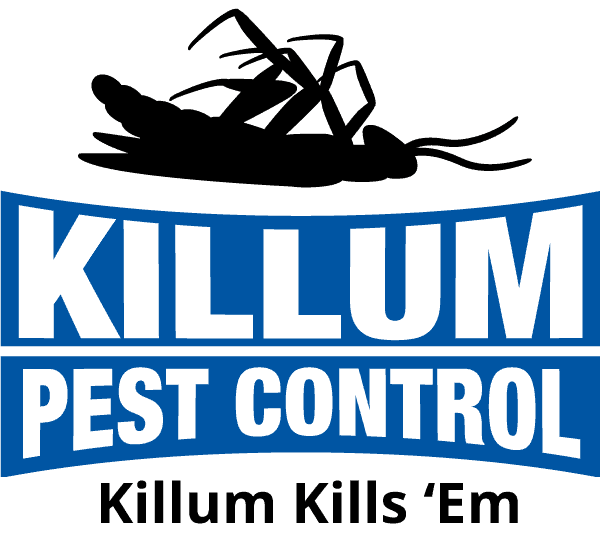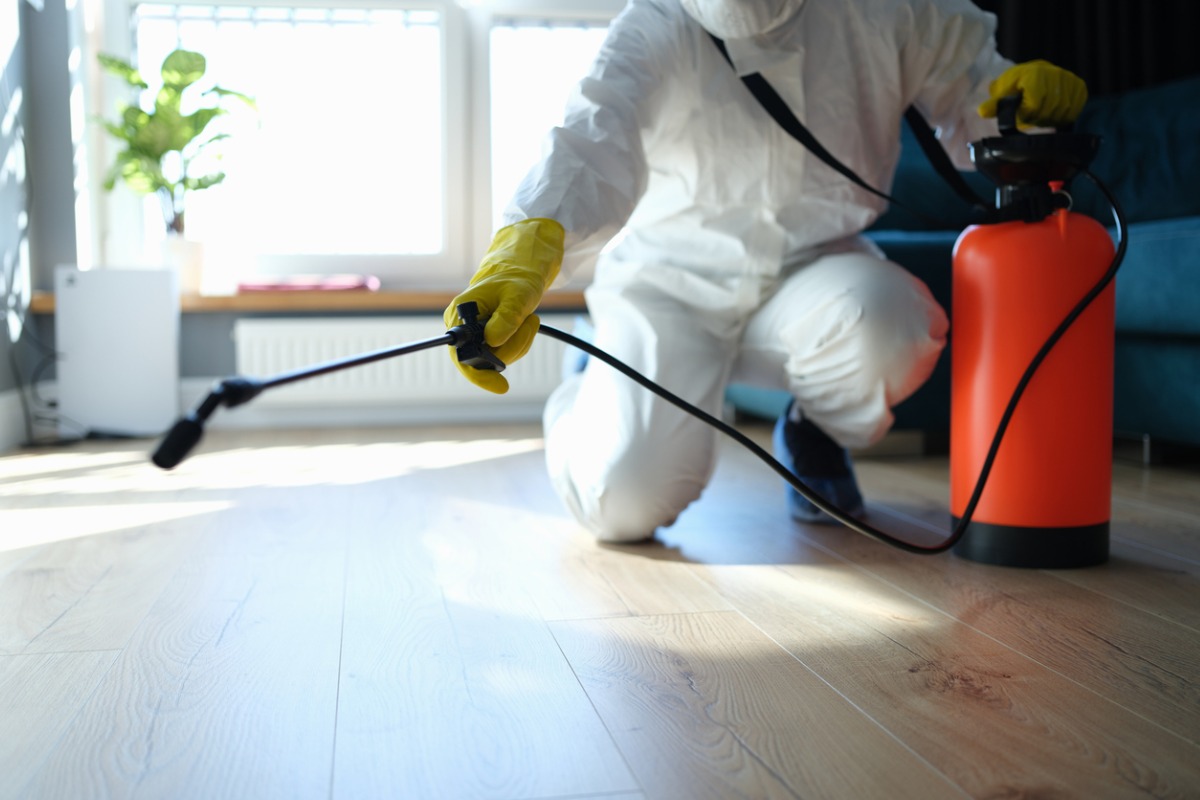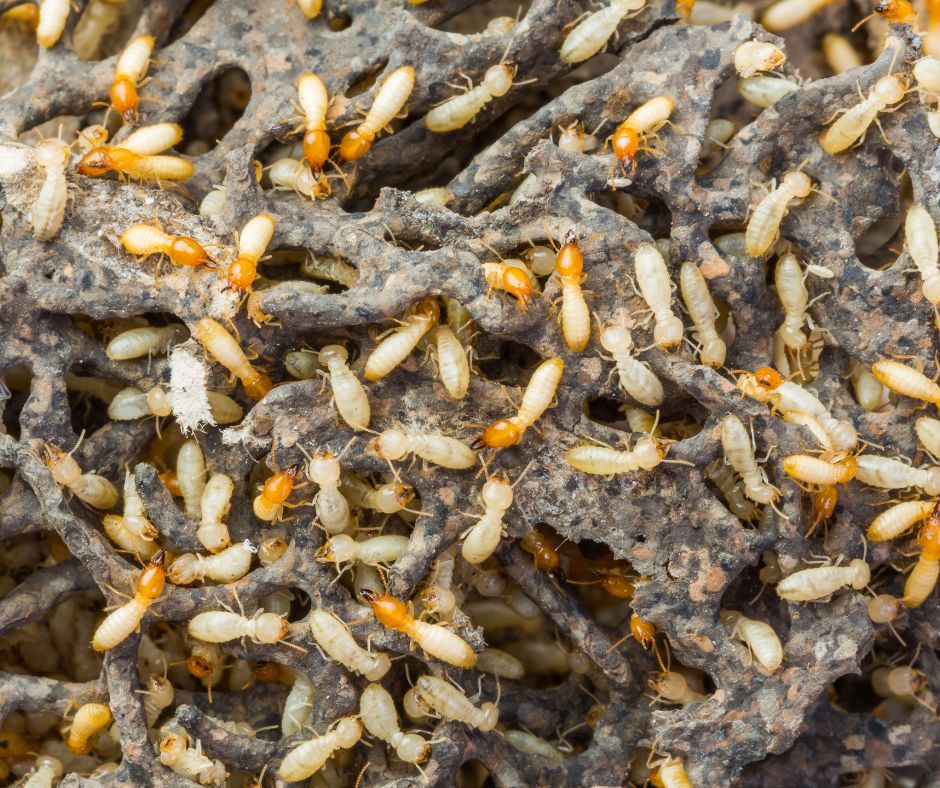Effective Termite Treatment Port Charlotte to Protect Your Property
Wiki Article
Reveal the Value of Insect Control in Maintaining a Healthy And Balanced Setting and Treatment Techniques

The Role of Insects in Ecological Communities
Bugs, frequently viewed solely as annoyances, play a complex duty in ecosystems that is crucial for keeping eco-friendly balance. They contribute substantially to numerous environmental procedures, consisting of pollination, vitamins and mineral biking, and insect control. For circumstances, many insect types, such as bees and butterflies, are crucial pollinators for a large range of plants, which subsequently sustains biodiversity and food production.In addition, insects work as target for many killers, creating an important link in food internet. This interdependence makes certain the survival of numerous types and aids regulate populations within communities (Termite treatment Port Charlotte). Decomposer parasites, such as particular beetles and fungi, are instrumental in breaking down natural matter, therefore enhancing dirt and helping with nutrition recycling.
Alternatively, while parasites can be beneficial, their overpopulation or invasion into non-native settings may disrupt these eco-friendly features. This intricacy highlights the relevance of understanding pest dynamics, as reliable insect monitoring approaches need to take into consideration both their eco-friendly duties and prospective impacts on human activities. Balancing pest presence while reducing damage is vital for protecting the stability of communities and making sure farming productivity.
Health And Wellness Dangers Linked With Bugs
The visibility of insects in various settings extends beyond their eco-friendly roles, as they also present considerable wellness threats to animals and people. Several pests, including insects, rats, and bloodsuckers, are providers of illness that can have severe health and wellness implications. Rodents are recognized to transmit hantavirus and leptospirosis, both of which can lead to severe respiratory system and kidney problems, respectively.Bugs such as insects and ticks are well known for spreading vector-borne diseases like jungle fever, dengue high temperature, and Lyme condition. These illnesses can cause high morbidity and mortality rates, particularly in susceptible populaces. Furthermore, parasites like vermins and cockroaches can exacerbate allergies and asthma, adding to respiratory system issues in people, specifically those with pre-existing problems.
Additionally, the presence of insects can cause psychological stress and discomfort, affecting total wellness. Contamination of food and surface areas by bug droppings and remains can bring about foodborne diseases, highlighting the significance of keeping hygienic conditions. Understanding the wellness threats associated with insects is essential in identifying the requirement of effective insect monitoring strategies to guard human and animal health and wellness.

Benefits of Reliable Insect Control
Reliable insect control is important for keeping a healthy and balanced and safe atmosphere, as it consistently mitigates the various threats connected with bug infestations. Among the primary benefits of efficient parasite monitoring is the reduction of health and wellness threats. Parasites such as rats, roaches, and mosquitoes are vectors for conditions that can affect both humans and pet dogs. By managing these populaces, the probability of illness transmission is substantially lowered.Furthermore, effective insect control safeguards residential or commercial property and structures from damage. Numerous pests, like termites and carpenter ants, can create substantial structural damages that might need expensive repairs. By proactively managing these companies, home owners and infestations can safeguard their investments.
An additional considerable advantage is the enhancement of overall lifestyle. A pest-free atmosphere contributes to psychological health and lowers stress and anxiety connected with infestations. Reliable insect control cultivates a more secure atmosphere for pet dogs and youngsters, making sure that homes remain refuges free from damaging chemicals and disease-causing organisms.
Typical Parasite Control Methods

In the realm of pest administration, various strategies are employed to fight problems efficiently. These methods can be broadly categorized into three main methods: social, mechanical, and chemical controls.
Cultural control entails customizing techniques to minimize pest survival, recreation, and facility. This may consist of crop turning, proper hygiene, and habitat adjustment, which jointly create a setting much less favorable to pest proliferation.
Mechanical control uses physical approaches to eliminate parasites (Termite treatment Port Charlotte). Techniques such as catches, obstacles, and vacuum cleaners are generally used to directly remove bugs from an area. This strategy is particularly effective for handling rodents and bugs without the use of damaging chemicals
Chemical control includes the application of pesticides to take care of bugs. These compounds can be classified right into insecticides, herbicides, and fungicides, each targeting particular sorts of parasites. It is crucial to utilize these chemicals deliberately, adhering to security standards and guidelines to minimize potential harm to non-target species and the atmosphere.
Each pest control strategy has its restrictions and benefits, and commonly, an incorporated method incorporating several methods yields the most effective cause maintaining a pest-free setting.
Lasting Bug Management Practices
Lasting bug monitoring practices include an array of approaches designed to decrease environmental influence while effectively managing parasite populations. These practices prioritize using eco pleasant methods over chemical pesticides, therefore reducing the danger of harm to non-target types, including advantageous insects, wildlife, and humans.Integrated Bug Management (IPM) is a foundation of sustainable practices, incorporating organic, cultural, mechanical, and chemical methods to manage parasites. Organic control involves introducing natural predators or parasites to reduce pest populations. Social methods, such as plant rotation and polyculture, disrupt pest life process and improve ecological community strength.
Mechanical approaches, such as obstacles or catches, can successfully avoid bug access without chemical treatment. Furthermore, keeping healthy and balanced ecological communities via correct soil management, plant wellness, and biodiversity can naturally alleviate pest concerns.
Education and recognition are essential components, encouraging individuals and areas to identify pest hazards early and execute safety nets. Termite treatment Port Charlotte. By cultivating an all natural strategy that Cockroach exterminator Port Charlotte stabilizes insect control with eco-friendly stability, lasting pest monitoring practices not just secure frameworks and plants however likewise add to a much healthier setting for future generations
Conclusion

Recognizing the health risks connected with pests is vital in acknowledging the need of effective pest administration strategies to guard human and animal wellness.
Reliable bug control is essential for preserving a healthy and balanced and secure setting, as it regularly alleviates the countless threats associated with bug problems.Integrated Parasite Management (IPM) is a cornerstone of lasting practices, integrating biological, social, mechanical, and chemical techniques to manage parasites. By comprehending the duty of pests, identifying involved wellness dangers, and using varied therapy methods, a lasting approach to pest monitoring can be attained. Integrated Pest Management (IPM) stresses a holistic methodology that mitigates damage to valuable microorganisms while properly controlling pest populaces.
Report this wiki page